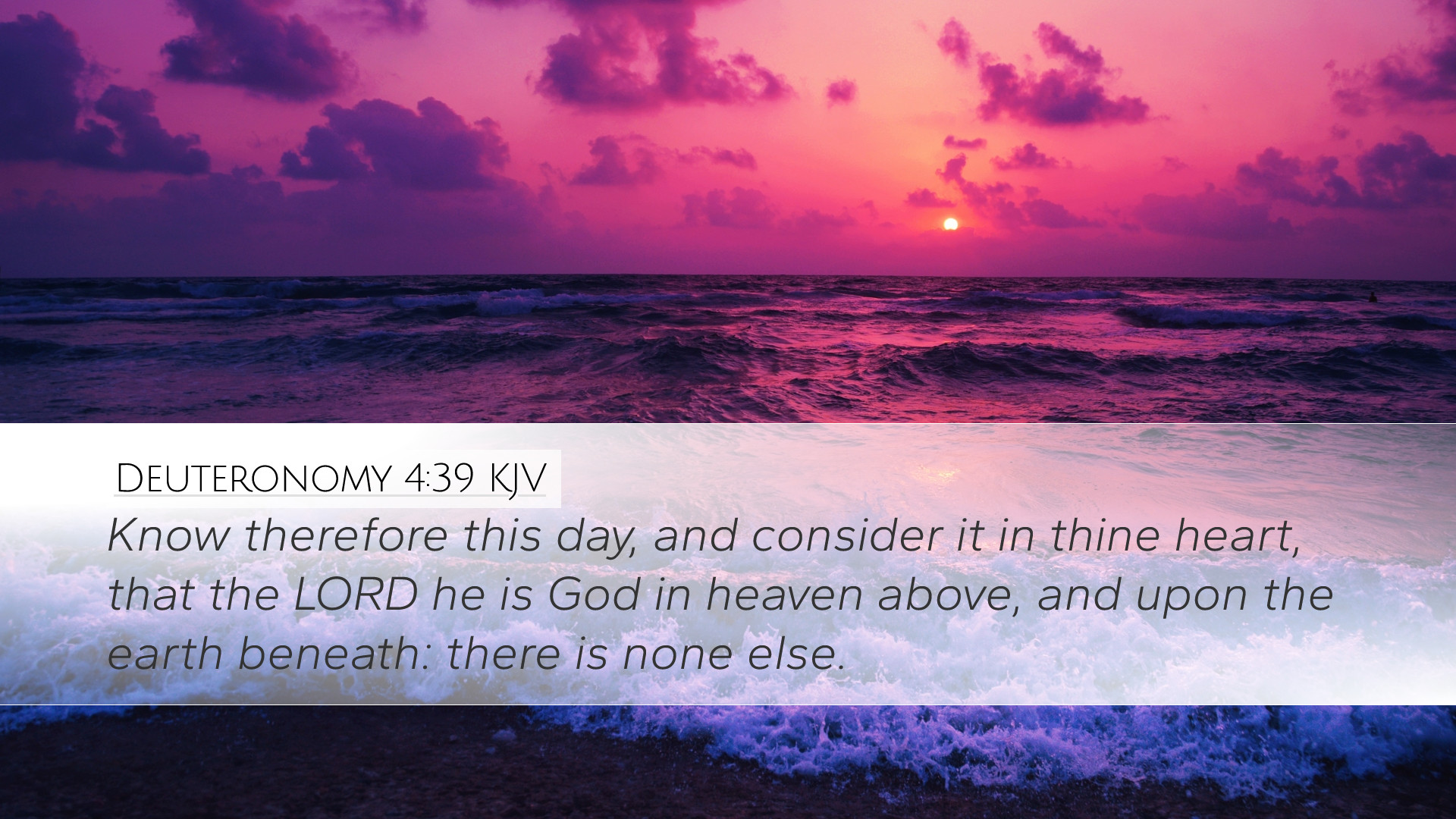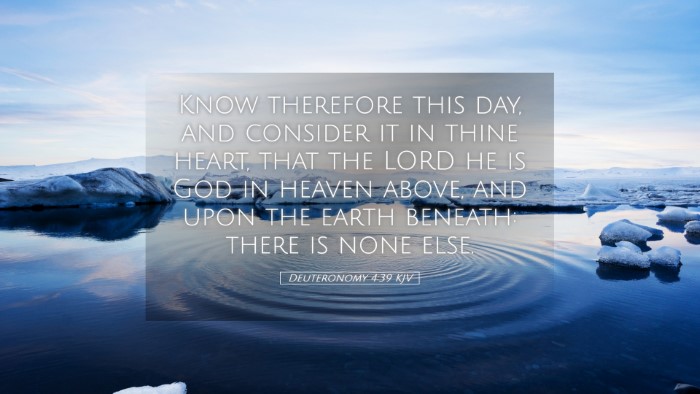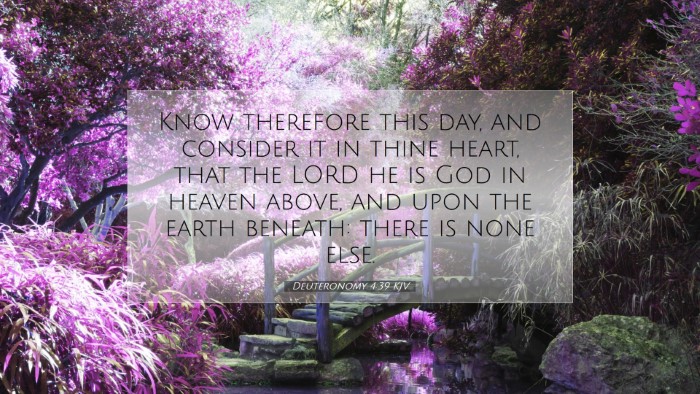Commentary on Deuteronomy 4:39
Verse: "Know therefore this day, and consider it in thy heart, that the LORD he is God in heaven above, and upon the earth beneath: there is none else."
Introduction
Deuteronomy 4:39 serves as a pivotal reminder to the Israelites of God's sovereignty and uniqueness. The verse encourages believers to recognize and affirm their faith in God, calling them to consider the implications of this knowledge both intellectually and spiritually.
Theological Significance
This verse encapsulates the core understanding of the monotheistic belief system that God is sovereign over all creation. It functions as an assertion of God's supremacy both in heaven and on earth, reinforcing the idea that there is no other deity besides Him.
Insights from Matthew Henry
Matthew Henry emphasizes the importance of knowledge as foundational to faith. He notes that acknowledging God's existence and His sovereignty is crucial for the proper orientation of the believer's life.
- Knowledge and Consideration: Henry asserts that true knowledge leads to meditation in the heart. This internal consideration instills a deeper faith and drives the believer's actions.
- Divine Authority: He stresses that God’s dominion is absolute, underlining that He reigns not only in the celestial realms but also governs the earthly realm.
- Call to Monotheism: Henry points out the exclusivity of God's claim to divinity, citing the danger of idolatry that plagued Israel, and calls for undivided loyalty to the one true God.
Insights from Albert Barnes
Albert Barnes expands on the implications of this truth for Israel's covenant relationship with God. He identifies the call to acknowledge God's lordship as essential for the community's identity and prosperity.
- Contextual Reminder: Barnes notes that the verse serves as a reminder amidst Israel's impending challenges and their need to remain faithful and steadfast in their covenant obligations.
- Practical Application: He emphasizes that understanding God's sovereignty fosters resilience in times of trial and trusting in God's providence.
- Consequences of Ignorance: Barnes warns of the spiritual peril that ensues when Israel forgets this truth, leading to disobedience and a breakdown of covenant community.
Insights from Adam Clarke
Adam Clarke's commentary draws attention to the personal aspect of knowing God as a relational experience rather than just intellectual acknowledgment.
- Heart Knowledge: Clarke emphasizes the need for deep spiritual engagement with the truths of God, urging that this knowledge should penetrate the heart.
- Universal Acknowledgment: He notes that the verse serves to counteract polytheism by asserting that God's authority encompasses all realms of existence.
- Forms of Response: Clarke suggests that such knowledge must lead to worship, reverence, and obedience, indicating that a proper understanding of God should elicit a response from the believer.
Historical Context
In the broader historical context, Deuteronomy 4:39 is situated within Moses' farewell address to the Israelites as they stand on the brink of entering the Promised Land. This moment is critical, as it serves as both a warning and an encouragement to remain faithful to the covenant.
Application for Today
For contemporary believers, the message of Deuteronomy 4:39 remains profoundly relevant. Understanding the sovereignty and uniqueness of God is fundamental to Christian faith and practice.
- A Call to Intimacy: Believers are invited to deepen their relationship with God, contemplating His nature and attributes.
- A Warning Against Idolatry: Just as Israel was warned against the allure of foreign gods, believers today are cautioned against modern idolatrous practices that distract from true worship.
- Faith in Action: This verse implores the believer to put faith into action by living out their convictions in all areas of life, assuring others of God's existence through their lifestyle.
Conclusion
Deuteronomy 4:39 stands as a timeless reflection on the nature of God and His relationship to humanity. This verse invites believers—pastors, students, theologians, and scholars alike—to engage deeply with the truth of God's unique position as sovereign over all, challenging them to internalize and live out their faith in response to this profound knowledge.


